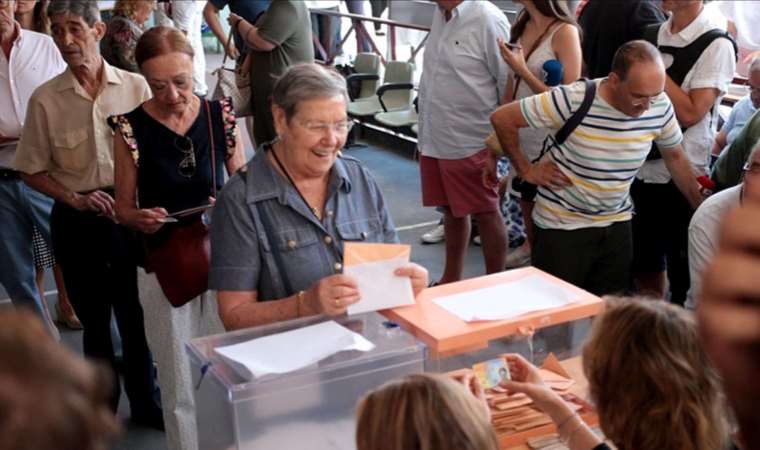The future of Spain’s government remained unclear Sunday night with 99.6% of the vote counted and both the left- and right-wing blocs falling short of an absolute majority.
But incumbent Prime Minister Pedro Sanchez was celebratory.
“I think Spain has been clear: the backward forces who wanted to turn Spain back in time and repeal the advances of the last four years have been defeated,” he said to a crowd chanting the anti-fascist slogan “No pasaran” (they shall not pass).
As predicted, the Popular Party won the most seats — 136. But with the far-right Vox party only winning 33, the two parties fall short of the 176 seats needed for an absolute majority.
While 11 political forces won seats in Spain, most of the smaller parties have stated their aversion to supporting a government that includes the far right.
Santiago Abascal, the leader of Vox, all but admitted defeat, blaming manipulation from the mainstream media for destroying the possibility of an “alternative” government.
But Popular Party candidate Alberto Nunez Feijoo vowed to do everything he could to become Spain’s next leader.
“Spaniards have given the Popular Party their trust, and my duty is to open the dialogue to govern our country according to the electoral results and our electoral victory,” he said to an optimistic crowd of supporters.
Sanchez’s Socialist Party defied expectations, winning 122 seats — two more than in the last national elections in 2019. His current coalition partner, represented by the far-left Sumar party and its leader, current labor minister and second deputy prime minister Yolanda Diaz, came in fourth with 31 seats.
“We were worried, but I think people will be able to sleep easy tonight,” said Diaz. “Democracy won and we’ve won.”
At the moment, the left-wing coalition parties are ruling the country without an absolute majority. Instead, they have courted the support of regional parties, including separatist forces from Catalonia and the Basque Country.
“Catalonia or Vox…this is the dilemma for Sanchez and Diaz if they want to govern the country,” said Gabriel Rufian of the Catalan Separatist party ERC.
He outlined his demands for more fiscal independence and better social services but did not demand an independence referendum.
But whether the left-wing bloc will maintain its hold on power is not guaranteed either. They will need to court new supporters, including the conservative Basque Nationalist Party (PNV), whose leadership has said that they refuse to support Vox. As the regional parties say, the price for their support won’t come cheap.
If no government is formed, Spain could face repeat elections. In the four years leading up to 2019, the country went to the polls four times after parties could not form a government.
Speaking Sunday night, Feijoo “formally requested” all other parties to “avoid the temptation” of creating another situation of stalemate and political blockage.















